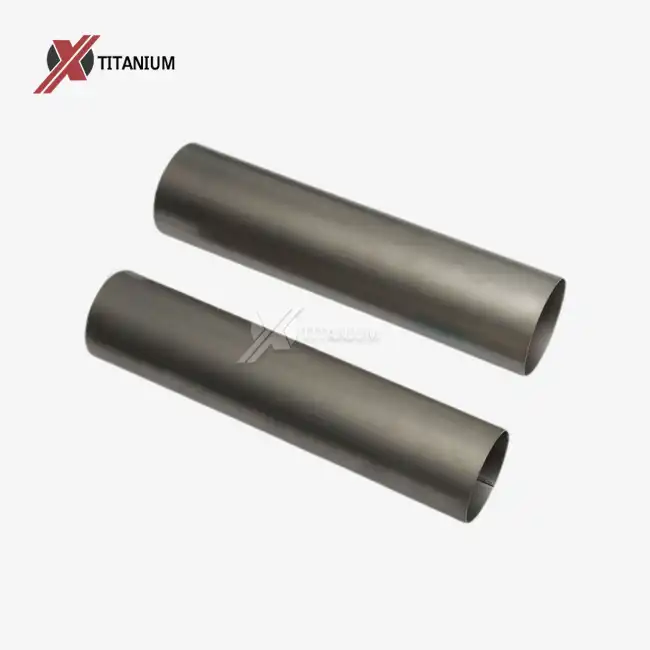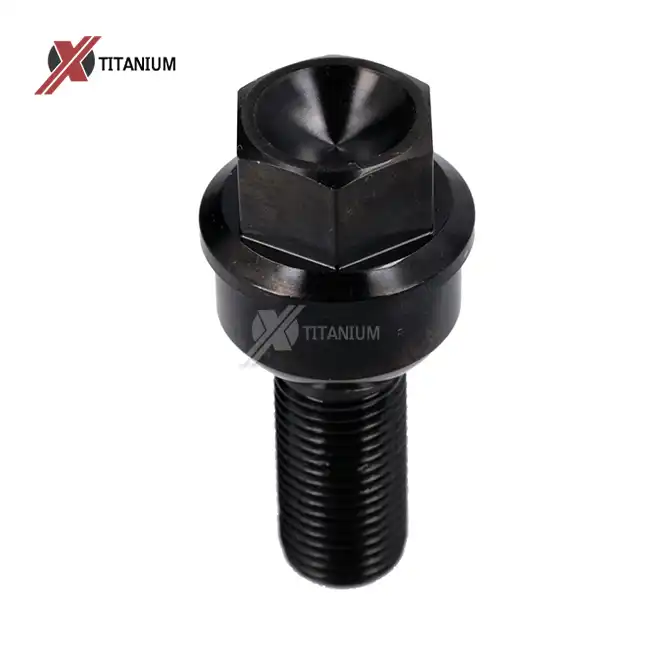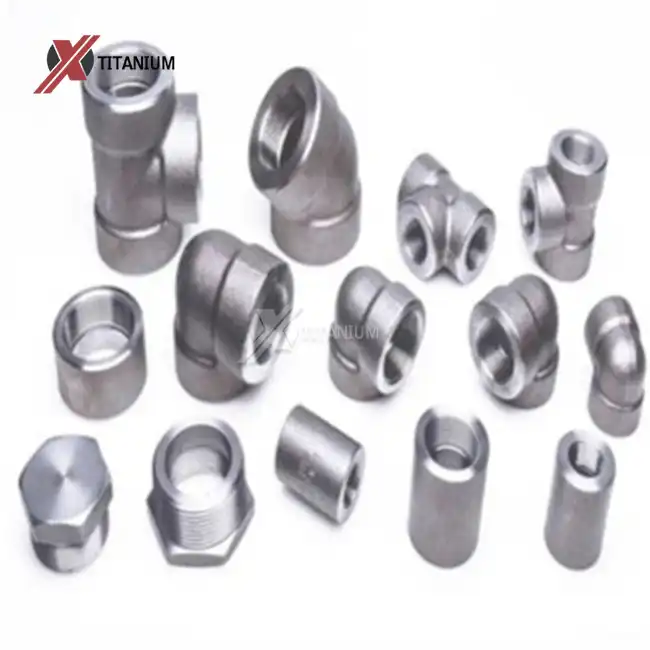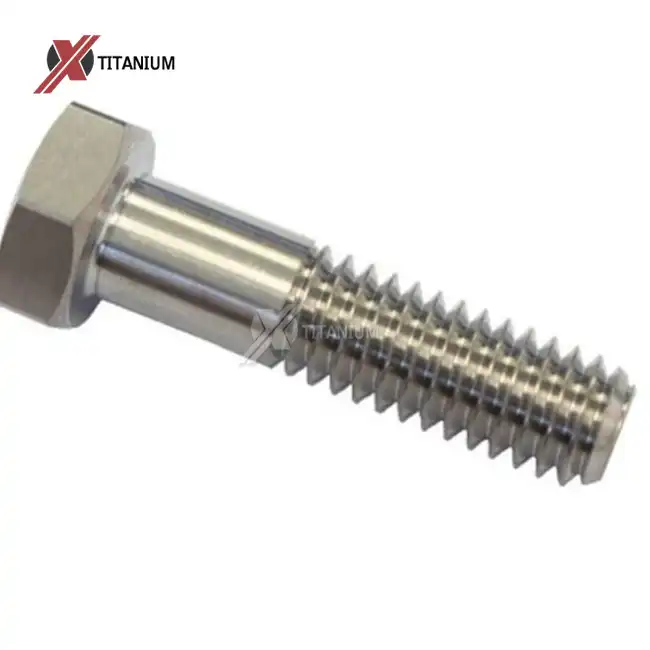Titanium eye bolts are becoming a staple in industries ranging from offshore drilling and shipbuilding to aerospace and chemical processing. Their reputation for exceptional strength, lightweight characteristics, and unmatched corrosion resistance makes them the fastening solution of choice in extreme environments.
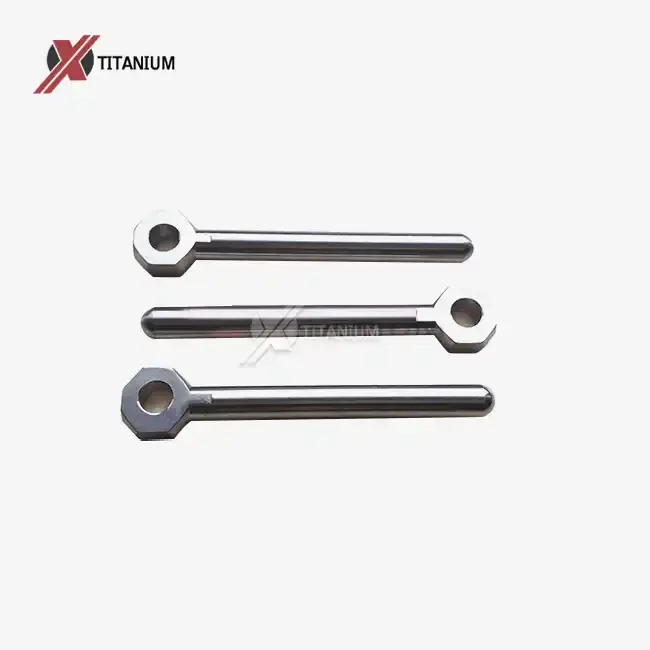
How Long Do Titanium Eye Bolts Last in Marine Environments?
One of the defining features of titanium eye bolts is their outstanding longevity in harsh, salt-laden marine atmospheres. While conventional metals like carbon steel, aluminum, and even stainless steel degrade quickly in these conditions, titanium stands virtually unchallenged.
The Role of the Passive Oxide Film
Titanium forms a robust oxide layer on its surface when exposed to oxygen. This layer is not only corrosion-resistant but also self-healing. Even if scratched or physically damaged, it reforms rapidly, continuing to shield the base material from corrosive agents.
Performance in Real-World Marine Applications
In long-term studies of offshore platforms and seawater desalination plants, titanium fasteners, including eye bolts, have demonstrated service lives exceeding 20 years without noticeable degradation. Their resilience significantly reduces maintenance frequency and the risk of catastrophic failure in mission-critical systems.
Protection Against Galvanic Corrosion
When dissimilar metals are used in electrical contact and immersed in an electrolyte (like seawater), galvanic corrosion can rapidly destroy less noble materials. Titanium, being on the far noble end of the galvanic scale, prevents this issue when paired with most metals, making it ideal in mixed-metal marine assemblies.
What Makes Titanium Eye Bolts Better Than Stainless Steel?
Stainless steel has long been favored for its corrosion resistance and strength, but titanium eye bolts offer several compelling advantages that justify their higher upfront cost in many critical applications.
Superior Strength-to-Weight Ratio
Titanium alloys such as Grade 5 (Ti-6Al-4V) offer tensile strengths comparable to 316 or even 17-4 PH stainless steels while being nearly 45% lighter. This high strength-to-weight ratio is invaluable in aerospace, naval architecture, and racing industries where reducing overall mass without compromising mechanical integrity is crucial.
Enhanced Resistance to Chloride Stress Corrosion
Unlike stainless steel, which is vulnerable to chloride-induced stress corrosion cracking (especially in the presence of high tensile stress and saline environments), titanium is virtually immune. This makes titanium eye bolts the safer choice in chemical processing plants, offshore oil rigs, and marine propulsion systems.
Thermal and Chemical Stability
Titanium eye bolts retain their mechanical properties over a broad temperature range and are compatible with an array of aggressive chemicals, including chlorine, nitric acid, and organic solvents. Stainless steel, by contrast, may suffer pitting or chemical attack under the same conditions.
Can Titanium Eye Bolts Handle Heavy Industrial Loads?
Despite their relatively low density, titanium eye bolts are anything but fragile. Their impressive mechanical properties allow them to perform in environments with high mechanical loads, dynamic stresses, and extreme temperatures.
Load Capacity and Mechanical Properties
Titanium Grade 5 has a tensile strength of approximately 950 MPa, with some heat-treated variants exceeding 1100 MPa. These numbers place titanium eye bolts on par with high-performance alloy steels, enabling them to support substantial static and dynamic loads in lifting, suspension, and anchoring applications.
Fatigue and Impact Resistance
In addition to raw strength, titanium exhibits exceptional fatigue resistance. Unlike steel, which can suffer from fatigue failure after repeated stress cycles, titanium maintains its integrity, even under conditions of constant vibration or shock loads. This makes titanium eye bolts ideal for high-cycle applications such as aircraft engine mounts, robotic assemblies, and earthquake-resistant infrastructure.
Application in Aerospace and Defense
Titanium’s high strength, resistance to temperature extremes, and non-magnetic nature make it a material of choice in military and aerospace applications. Titanium eye bolts are often used in jet engines, satellite frames, and submarine structures—areas where failure is not an option and weight reduction is crucial.
Additional Benefits of Titanium Eye Bolts
While strength and corrosion resistance are the most cited advantages, titanium eye bolts offer other benefits that enhance their overall value in industrial applications.
Biocompatibility
Titanium is biologically inert and non-toxic, which is why it’s widely used in surgical implants. This property is also useful in the food and pharmaceutical industries, where material contamination must be avoided.
Environmental Durability
Titanium does not degrade under UV light or in ozone-rich atmospheres. Its resistance to environmental aging means it can be stored and used in exposed environments without deterioration, extending service intervals and reducing downtime.
Lifecycle Cost Efficiency
Though initial procurement costs are higher, the reduced need for maintenance, replacements, and corrosion mitigation make titanium eye bolts a more cost-effective option over the long term. Industries that value operational continuity and low total cost of ownership consistently find titanium fasteners to be the smarter investment.
Final Thoughts
Titanium eye bolts are a premium solution for critical fastening tasks in extreme environments. Their unmatched corrosion resistance, high strength-to-weight ratio, and long-term reliability far outweigh the upfront investment. Whether you’re designing equipment for marine exploration, aerospace systems, or industrial lifting frameworks, titanium eye bolts ensure safety, durability, and performance at the highest level.
References
-
Smith, J.R. (2021). "Advanced Materials in Aerospace: The Role of Pure Titanium". Journal of Aerospace Engineering, 45(3), 234–248.
-
Johnson, A.M. & Williams, P.K. (2020). "Biocompatibility of Titanium in Medical Implants: A Comprehensive Review". Biomaterials Science, 8(12), 3301–3320.
-
Chen, Y., et al. (2019). "Corrosion Behavior of Pure Titanium in Marine Environments". Corrosion Science, 152, 120–133.
-
Patel, R.N. & Thompson, L.E. (2022). "Manufacturing Processes for High-Quality Titanium Plates". Advanced Materials Processing, 180(5), 45–58.
-
Garcia, M.S., et al. (2023). "Applications of Pure Titanium in Sustainable Architecture". Architectural Engineering and Design Management, 19(2), 178–195.
